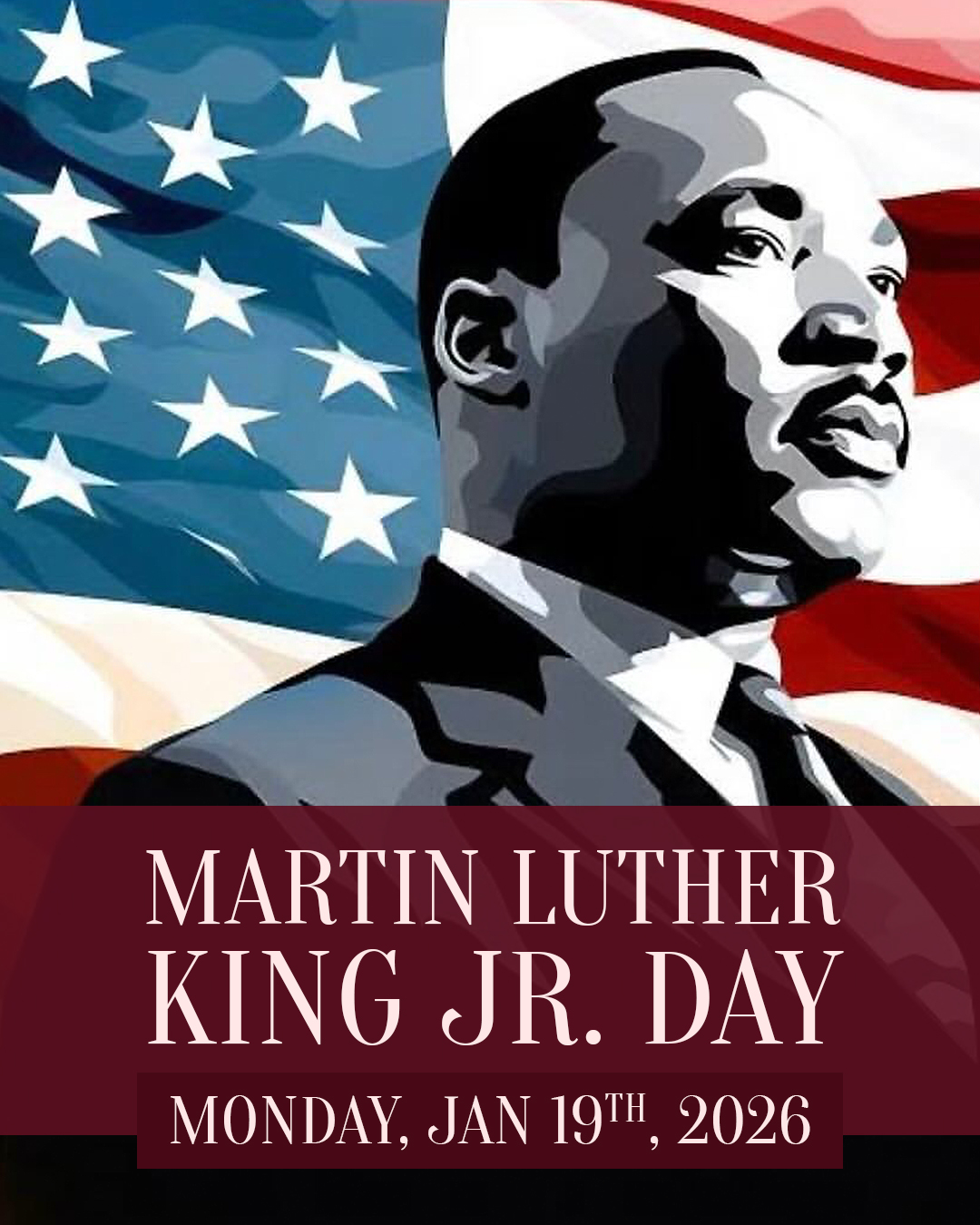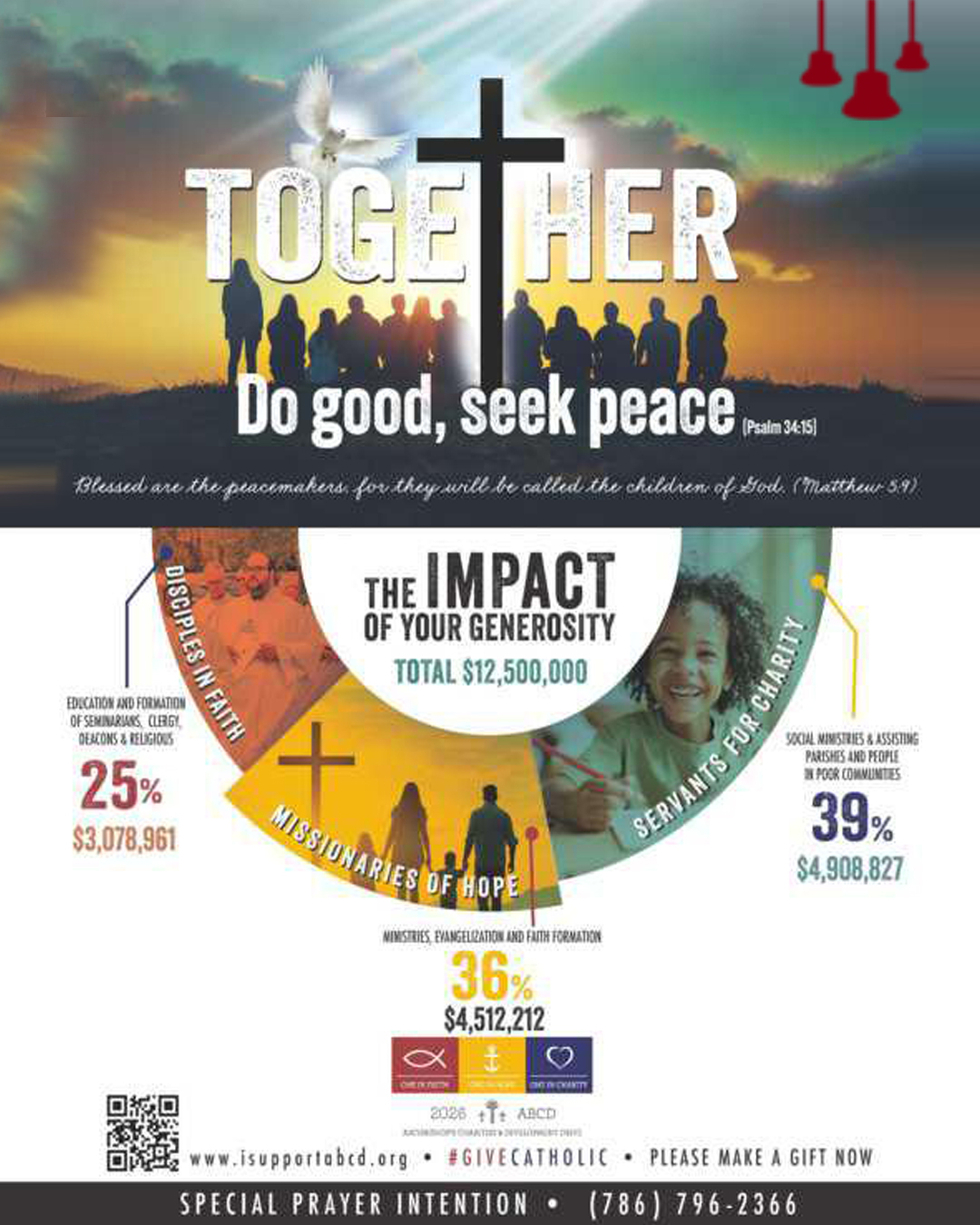Martin Luther King Jr. Day

In observance of Martin Luther King Jr. Day, there will be no Religious Education classes on Sunday, January 18th and the Parish Office will be closed on Monday, January 19th.

In observance of Martin Luther King Jr. Day, there will be no Religious Education classes on Sunday, January 18th and the Parish Office will be closed on Monday, January 19th.

Enjoy delicious homemade treats and food, made with love.
Dates:
We will have:
• Brownies • Cookies • Cupcakes • Bizochos • Postres • Arepas • Empanadas • Ron Cake • Bagels • And much more! •
Thank you for supporting our mission. Your collaboration makes a difference.
Disfruta deliciosos postres y comidas caseras, preparadas con amor
Fechas:
Tendremos:
• Brownies • Cookies • Cupcakes • Bizochos • Postres • Arepas • Empanadas • Ron Cake • Bagels • ¡Y mucho más! •
Gracias por apoyar nuestra misión. Tu colaboración hace la differencia.

Help make sandwiches to feed the hungry!
Sponsored by St. Martha's CCD Program
We meet ONCE a month!
First Meeting: Wednesday, January 28th, 2026
Who can join?
CCD students in the Communion Level 2 Class and up!
And other children between the ages of 7 - 17.
We appreciate donations of bread, ham, turkey and cheese.
Thank you!
For Questions, call the parish office: (305) 751-0005 or email Cathy Palma: cpalma@stmarthamiami.com

TOTAL $12,500,000
Disciples of Faith:
Education and formation of seminarians, clergy, deacons & religious
25% ($3,078,961)
Missionaries of Hope:
Ministries, evangelization and faith formation
36% ($4,512,212)
Servants of Charity:
Social ministries & assisting parishes and people in poor communities
39% ($4,908,827)
Do good, seek peace ( Psalm 34:15 )
Blessed are the peacemakers, for they will be called the children of God. ( Matthew 5:9 )
| Give Now |
.jpg)
Led by: Fr. Juan Carlos Salazar & Mike Palma.
English Class
Meet at St. Martha Parish Center
9221 Biscayne Blvd
Call the Parish Office to register now: (305) 751-0005
Reunir en la cafeteria de la Arquidiocesis
9301 Biscayne blvd

If you would like to request a Mass Intention for someone, please feel free to go to our Parish Office.
Office Hours:
For more information, call (305) 751-0005
Si desea solicitar una intención de Misa para alguien, no dude en acudir a nuestra Oficina Parroquial.
Horas de Oficina:
Para más información, llame al (305) 751-0005

We are excited to announce that St. Martha's Sacred Heart Adoration Chapel is now open for Eucharistic Adoration.
Jesus is waiting for you!
Open during Parish Office Hours:
Located at St. Martha's Parish, 9221 Biscayne Blvd.
For questions, call the office: (305) 751-0005.
Estamos felices de anunciar que la Capilla de Adoración del Sagrado Corazón en Santa Martha ya está abierta para la Adoración Eucarística.
Jesús esta te esperando!
Abierto durante las horas de la Oficina Parroquial:
Ubicado en la Parroquia de Santa Martha, 9221 Biscayne Blvd.
Para preguntas, llame al oficina: (305) 751-0005.

The Respect Life Ministry of the Archdiocese of Miami is dedicated to protecting and upholding the dignity of every human life - from conception to natural death.
That's why we've chosen to do business with EveryLife Diapers, a 100% pro-life diaper company committed to the same mission.
Why Choose Everylife?
Your dollars make a difference.
Help protect life and provide for moms in need - one diaper at a time!
| Click here to Order and Receive 10% off! |

Dear Lord,
Bless and anoint us today. Youare our Father and guide.Remind us of our identity inYou:loved, called, and equipped formission.Bless us as we journey, givingus strength for each day andgrace in each step.
Amen.
Dios mío,
Bendícenos y úngenos hoy. Túeres nuestro Padre y guía.Recuérdanos nuestra identidaden Ti:Amados, llamados y equipadospara la misión.Bendícenos en nuestro camino,dándonos fuerza para cada díay gracia en cada paso.
Amén.
.jpg)
Adoration every first Friday of the month
ACTIVITIES SCHEDULE
|
Alternate Mondays (Schedule varies - Call the office) |
7:30pm | Parish Center / Centro Parroquial |
|
Meets every first Tuesday of the month / Primer martes del més | 7:00pm - 9:00pm | Parish Center / Centro Parroquial |
|
Meets the forth Tuesday of the month / Cuarto martes del més | 7:00pm | Parish Center / Centro Parroquial |
|
Jueves | 7:00pm - 9:00pm | Parish Center / Centro Parroquial |
|
Meets every 3rd Wednesday of the month during School Year | 7:00pm - 9:00pm | Parish Center / Centro Parroquial |
|
Jueves | 7:30pm - 9:30pm | Salon "E" |
|
Meets the first Wednesday of the month / Reunión cada primer miércoles del més | 9:00am | Parish Center / Centro Parroquial |
| Bilingual Rosary every first Saturday / Rosario Bilingüe el primer Sábado del més | 7:45am | Church / Iglesia | |
|
Every Sunday during school year | 8:30 - 10:00 |